Helpis minitabunda is found on foliage in most habitats in Eastern Australia, also in New Guinea and New Zealand, often abundant in gardens. Like most jumping spiders it is very agile and fast. It seems confident in its ability to jump to safety, allowing quite close approaches. When approached with a camera it will either rear up and watch you carefully or scuttle to the other side of the leaf. If you turn the leaf the other way it may run to the other side and hide again or sometimes stay still to watch you, swivelling its eyes, or even jump onto the camera. The male is very distinctive, larger than the female, with a flattish caput covered with white or cream hairs. The face has very large protruding chelicerae, and white rings around legs I and II above the metatarsi. The abdomen is long and gently tapering, whitish on top. The sides of both the cephalothorax and the abdomen are dark brown. The legs are very long, legs I and II especially so. The female looks as though she is wearing wraparound sunglasses of the type that have see-through sections on the sides. She is more cryptic than the male, with orange to brown blotches and patterns, often very clear or translucent legs, projecting eyes framed with short tubes of hairs, and a shape on the abdomen within the margins usually with some dark figures in about the centre of the abdomen on each side. Fully grown females also have white leg rings. Named by Koch in 1880 as Astia minitabunda. The Latin species name minitabunda means threatening. ♀ 11mm ♂ 12mm
- Female 12-12-09 looking up
- Female from above, mature
- Juvenile, The Gap, Brisbane, front on
- Juvenile The Gap, Brisbane, from above
- Male, from above, facing
- Male, facing
- Male from above
- Female adult, body length 9mm, Freshwater National Park 230111 from above in alcohol
- Female adult, body length 9mm, Freshwater National Park 230111 epigyne 1
- Female adult, body length 9mm, Freshwater National Park 230111 epigyne 2 a slightly different view
- Female adult Papamoa Beach New Zealand
- Retreat with female visible inside Papamoa Beach New Zealand
- Female adult Papamoa Beach New Zealand, emerged from retreat
- Female adult Papamoa Beach New Zealand, emerged from retreat
- Sub adult male in alcohol 17-10-11 Rinn Ave. Bunya
- References
Female 12-12-09 looking up
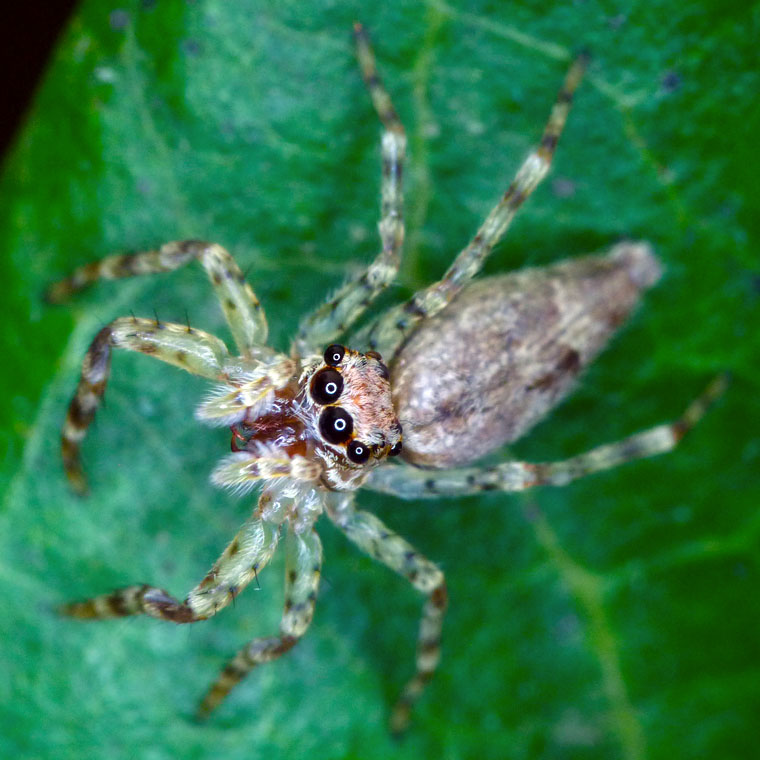
Female from above, mature
Body length about 7mm, note the dark abdomen.
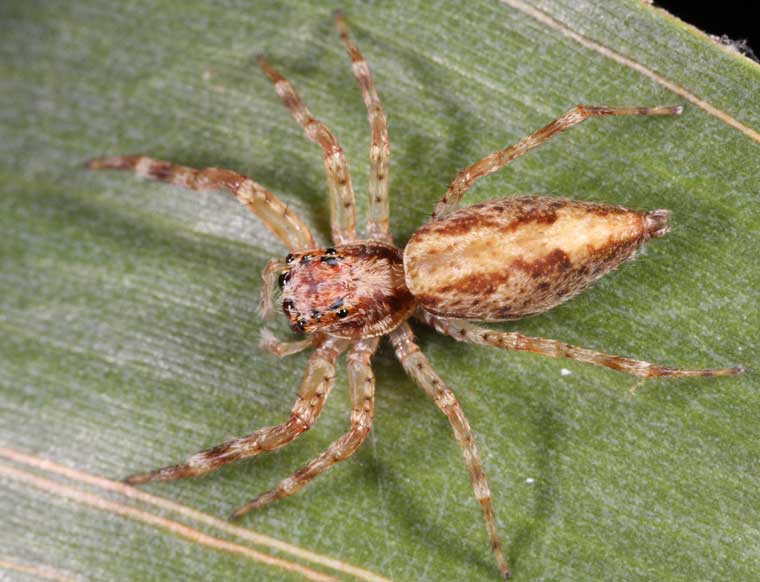
Juvenile, The Gap, Brisbane, front on
This juvenile spider was very frisky, readily jumping and running.
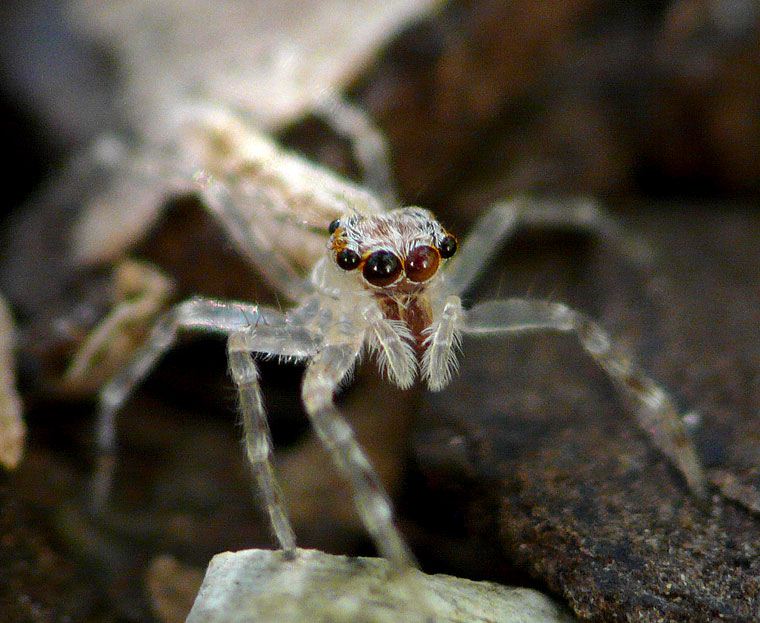
Juvenile The Gap, Brisbane, from above

Male, from above, facing
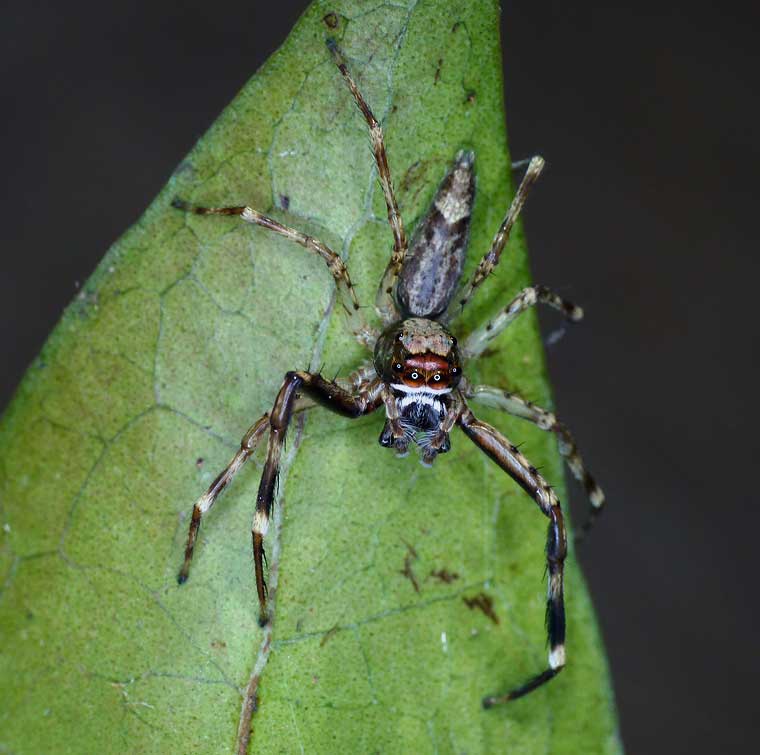
Male, facing
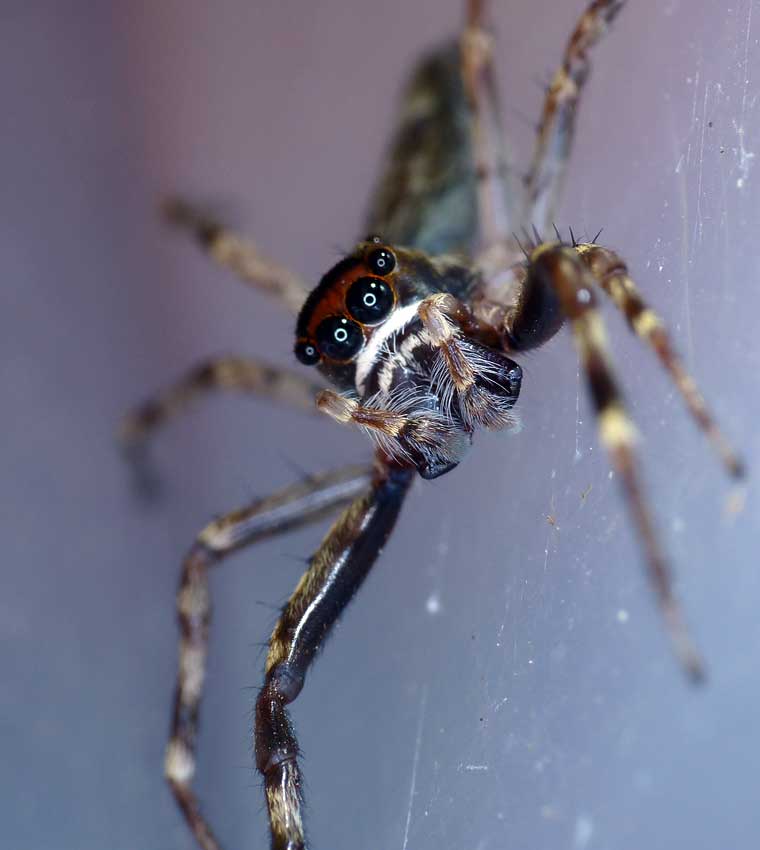
Male from above
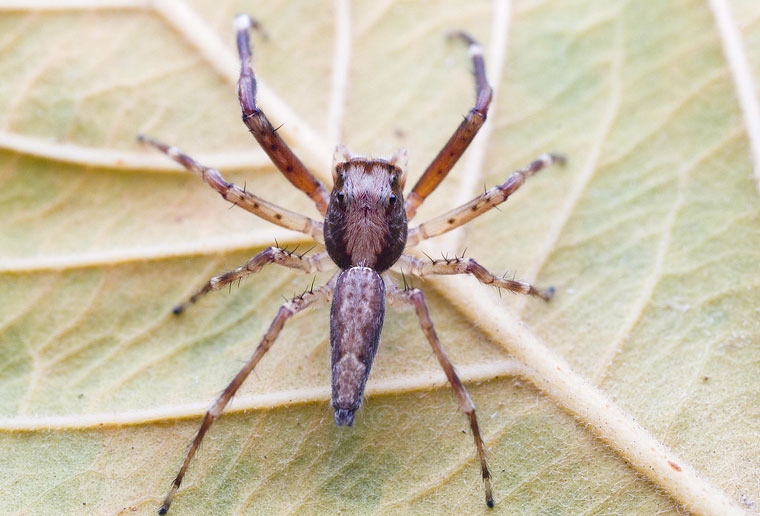
Female adult, body length 9mm, Freshwater National Park 230111 from above in alcohol
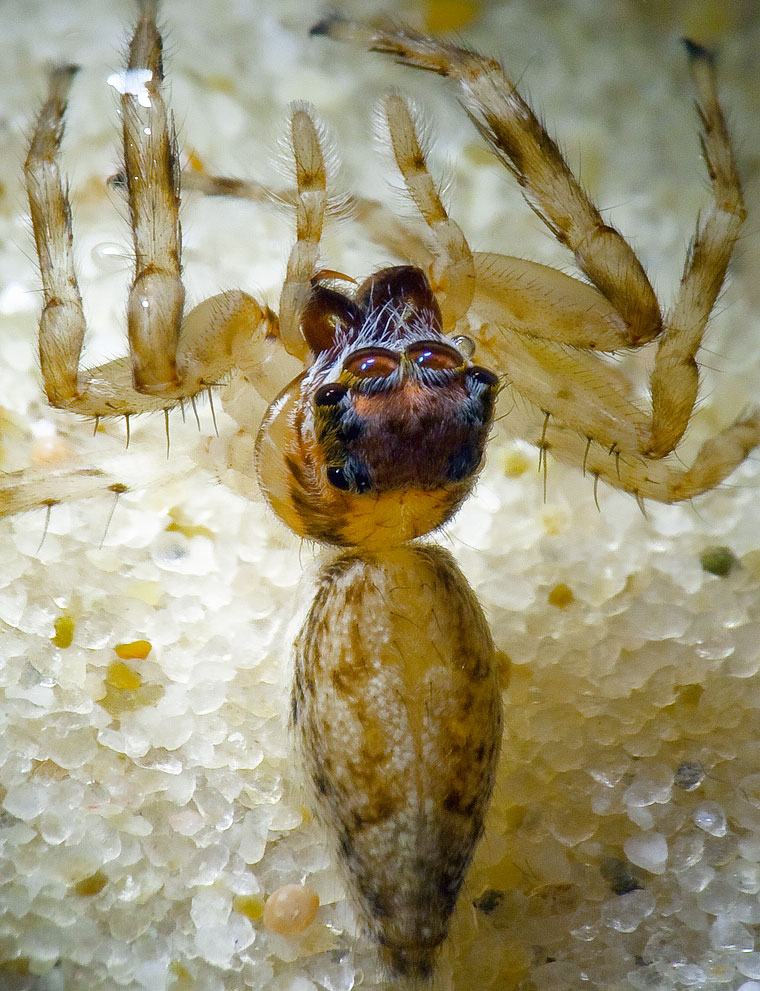
Female adult, body length 9mm, Freshwater National Park 230111 epigyne 1
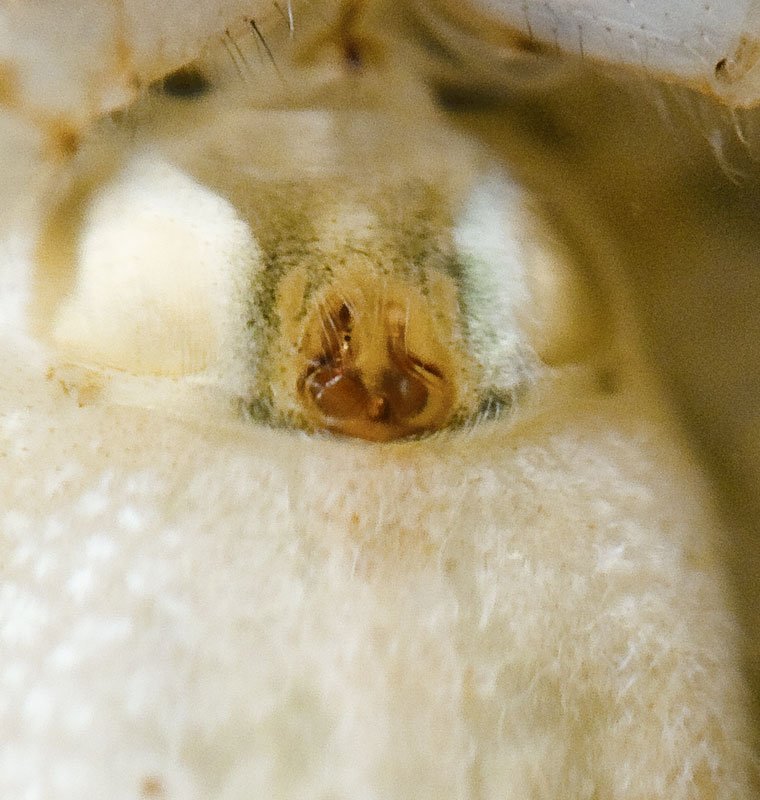
Female adult, body length 9mm, Freshwater National Park 230111 epigyne 2 a slightly different view
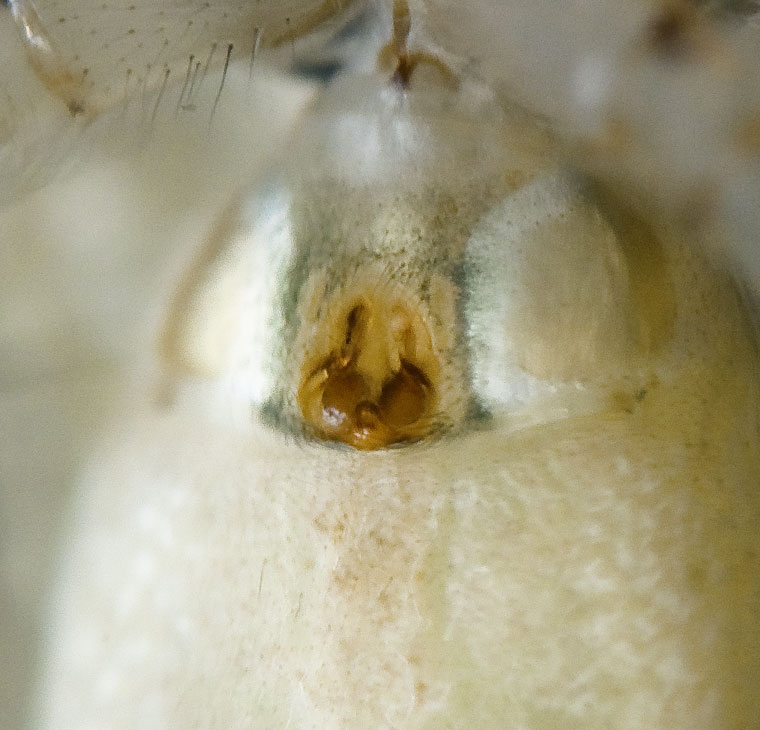
Female adult Papamoa Beach New Zealand
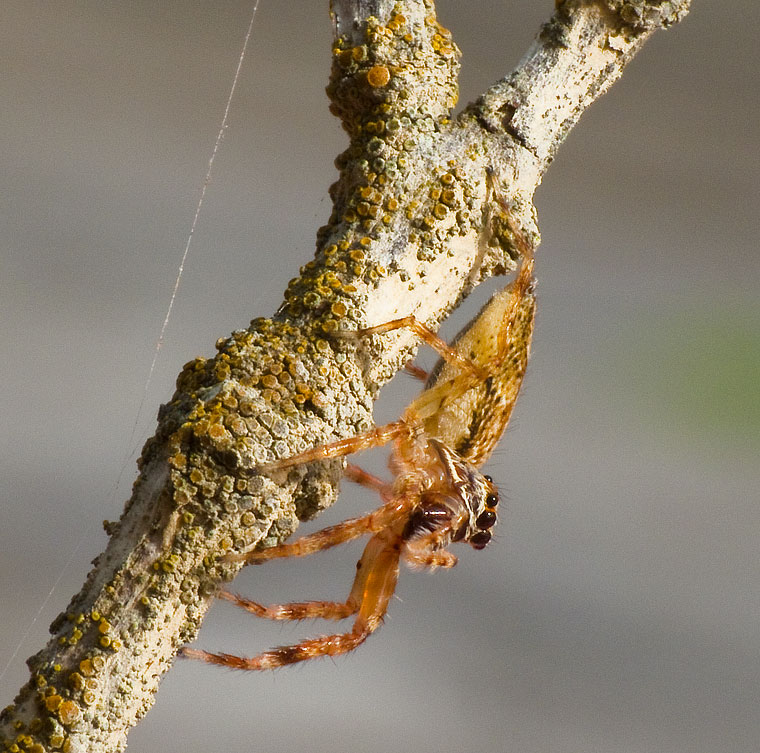
Retreat with female visible inside Papamoa Beach New Zealand
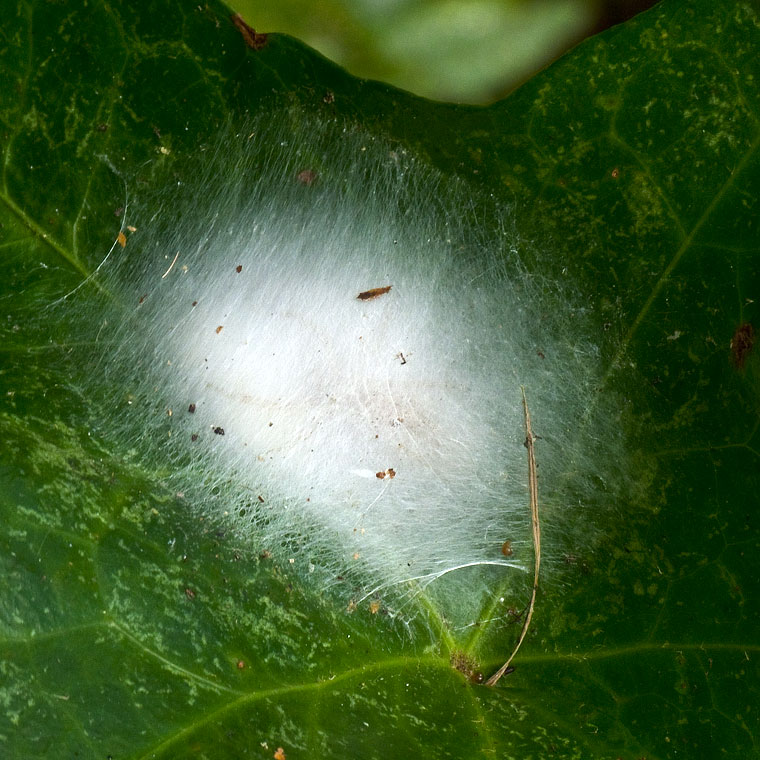
Female adult Papamoa Beach New Zealand, emerged from retreat
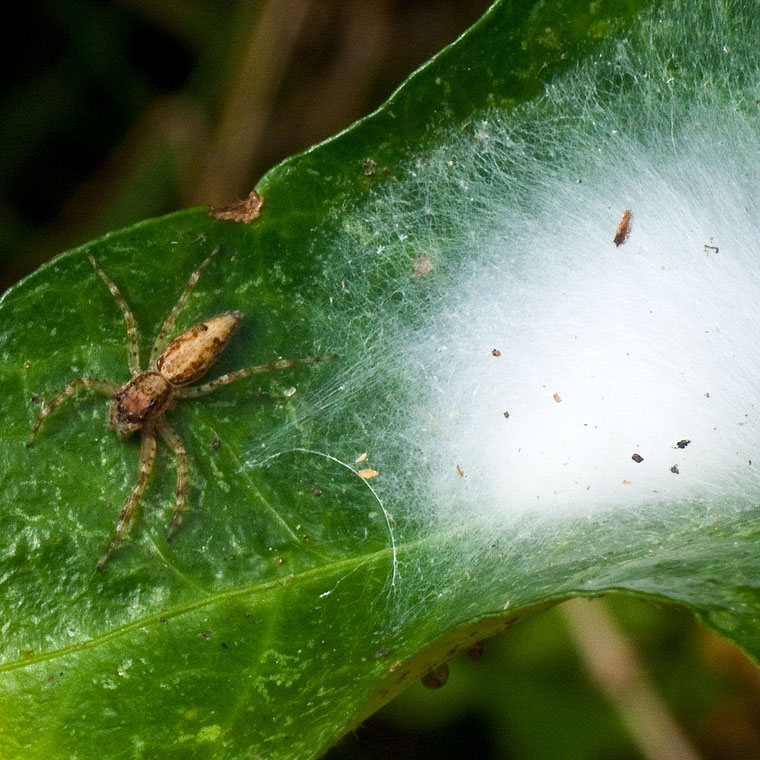
Female adult Papamoa Beach New Zealand, emerged from retreat
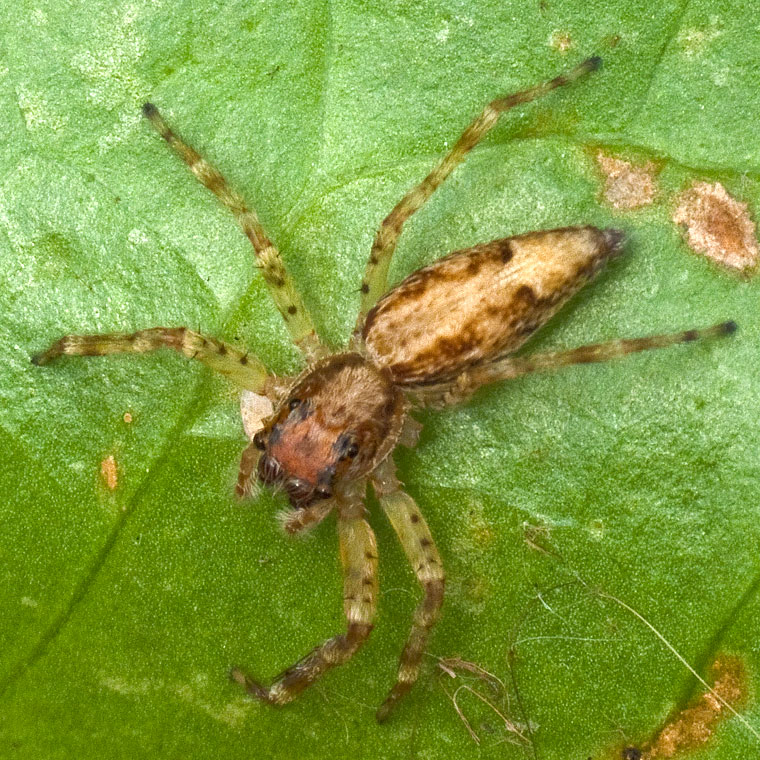
Sub adult male in alcohol 17-10-11 Rinn Ave. Bunya
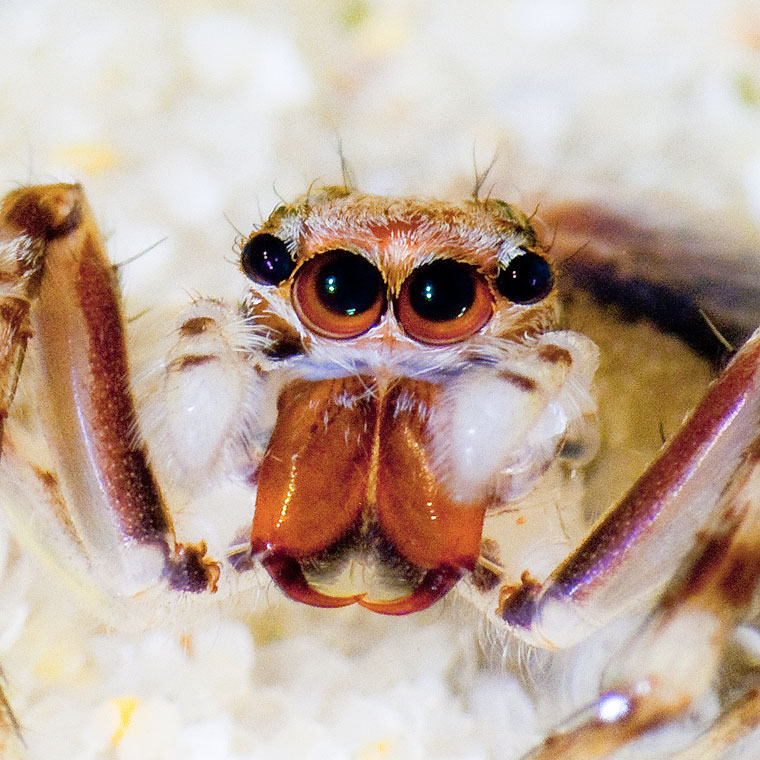
References
- A Checklist of Australian Spiders - Compiled by R. J. Raven (Queensland Museum). Based on N. I. Platnick's 'The World Spider Catalog, V5.0
- The World Spider Catalog, V9.0 - by N. I. Platnick © 2000 - 2008 AMNH